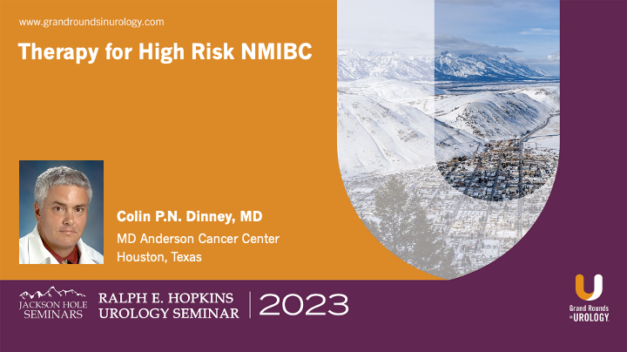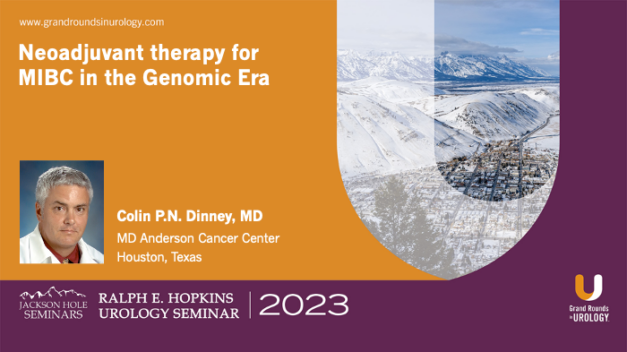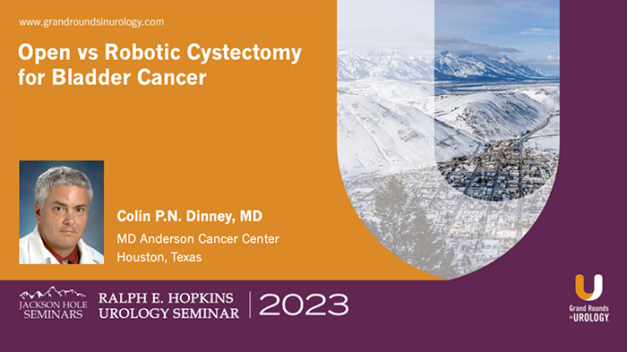Therapy for High Risk NMIBC
Colin P.N. Dinney, MD, defines the criteria that categorize patients as high-risk, such as tumor grade, size, and recurrence history. He underscores the importance of early and accurate diagnosis using advanced imaging techniques and molecular markers, which play a crucial role in guiding treatment decisions.
He focuses on Bacillus Calmette-Guérin (BCG) therapy, the gold standard for high-risk NMIBC. Dr. Dinney reviews BCG’s mechanisms of action, administration protocols, and factors influencing its efficacy. He also addresses the challenges posed by BCG shortages and the emergence of BCG-unresponsive disease, highlighting the need for alternative therapeutic strategies.
Further, Dr. Dinney discusses the potential of immune checkpoint inhibitors, targeted therapies, and gene therapy in the context of high-risk NMIBC. He presents data from recent clinical trials that demonstrate the promising results of these innovative approaches in achieving durable responses and reducing recurrence rates.
Read More


